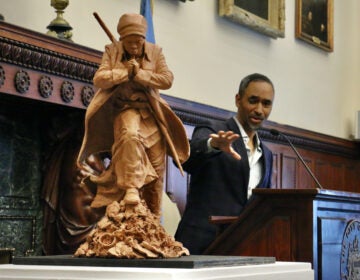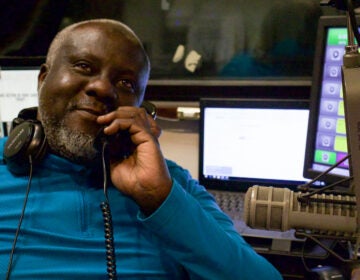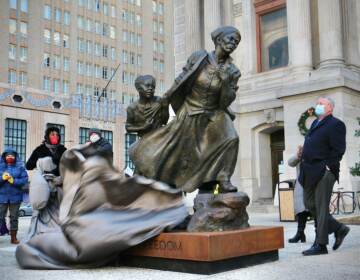‘Two singular voices’: WURD radio hosts conversation on Harriet Tubman and Frederick Douglass
Scholars Erica Armstrong Dunbar and C. James Trotman talked about the lives of Harriet Tubman and Frederick Douglass at the Barnes Foundation.
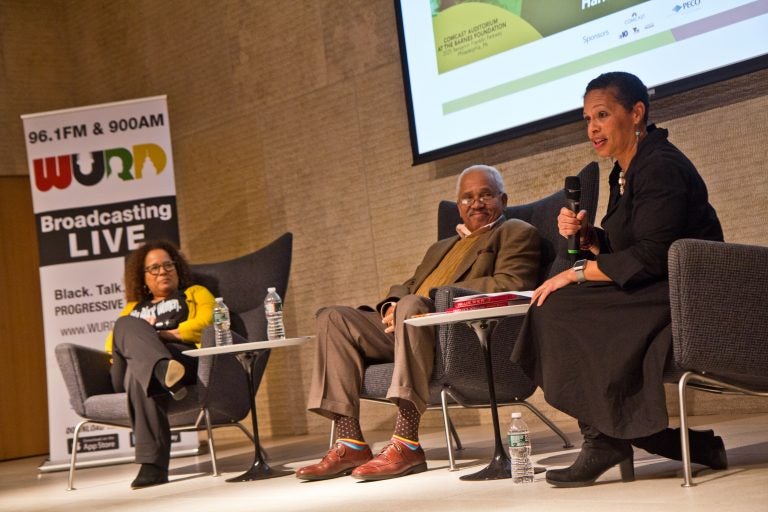
WURD Radio’s president and CEO Sara Lomax-Reese (right) hosts the Fredrick Douglass and Harriet Tubman - Struggle and Progress, with panelists C. James Trotman, founding director of the Frederick Douglass Institute, (center), and Erica Armstrong Dunbar, author of She Came to Slay: The Life and Times of Harriet Tubman (left). (Kimberly Paynter/WHYY)
On the same night the new film “Harriet” opened, professors Erica Armstrong Dunbar and C. James Trotman brought the lives of Harriet Tubman and Frederick Douglass alive before a crowd at the WURD Radio speakers series.
The event, held at the Barnes Foundation galleries, came four days before Dunbar’s book “She Came to Slay: The Life and Times of Harriet Tubman” debuts.
Sara Lomax Reese, President, and CEO of WURD facilitated the discussion as part of the station’s Walter P. Lomax, Jr., MD Speaker Series.
Dunbar, a professor at Rutgers, said one of her aims while writing the book was to unveil the intricacies of Tubman’s life, “to help us think about Tubman not only as that person on the underground railroad.”
Dunbar asked the questions, “Who was she as a child, who was she as a teenager, as a newlywed under slavery…what was her life like?”
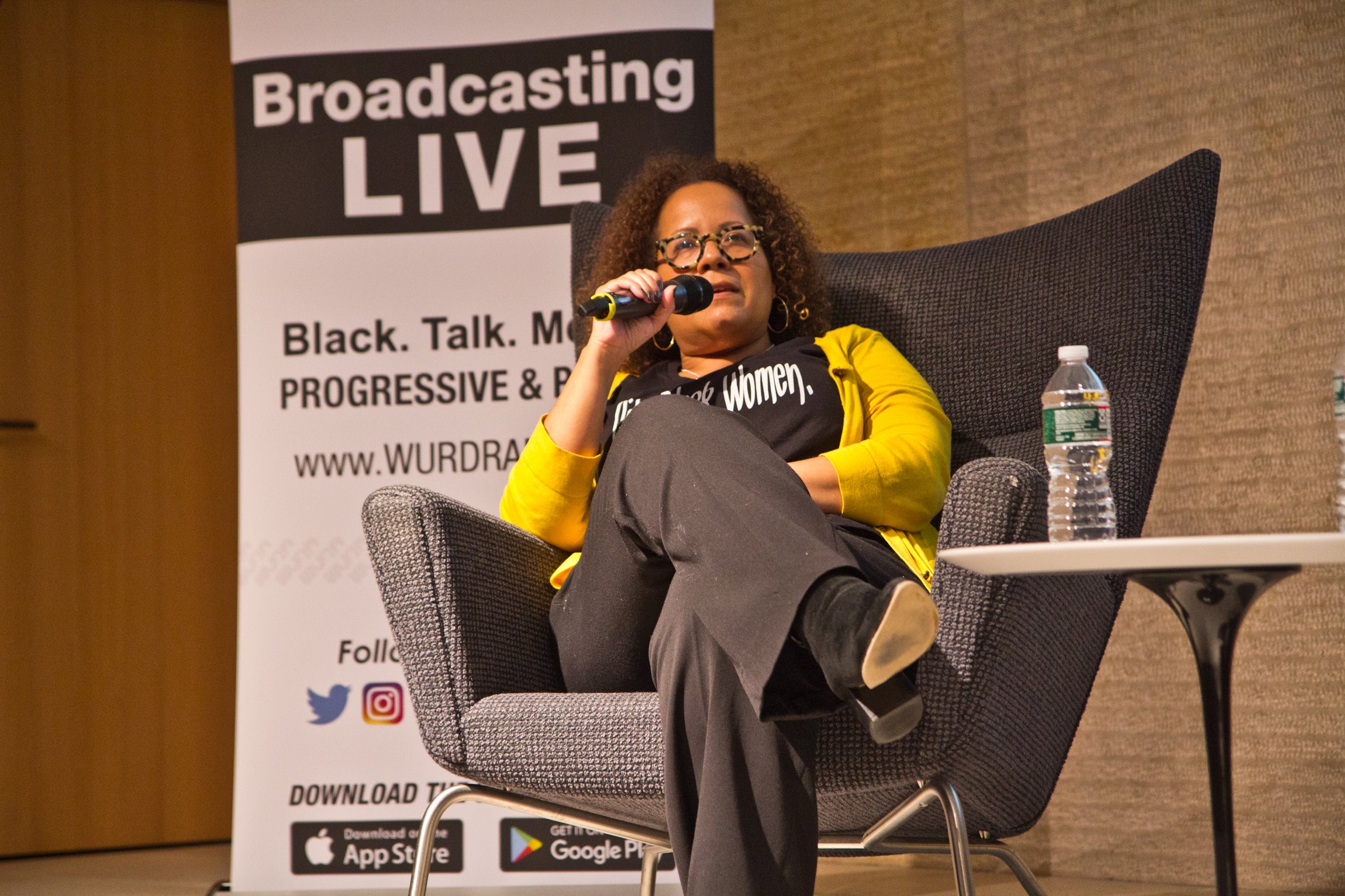
Tubman, who guided about 900 enslaved people to freedom, is depicted differently in Dunbar’s book than in her movie. For example, she pointed out that the film takes a few liberties surrounding the attempted emancipation of Tubman’s husband.
Trotman and Dunbar spoke of the relationship between Douglass and Tubman.
Douglass highly respected Tubman’s work as a fellow freedom fighter. He “for all of his life, walked shoulder to shoulder with women and their rights,” said Trotman who is founding director of the Frederick Douglass Institute, a Douglass biographer and professor emeritus at West Chester University.
They were “two singular voices in world history,” said Trotman.
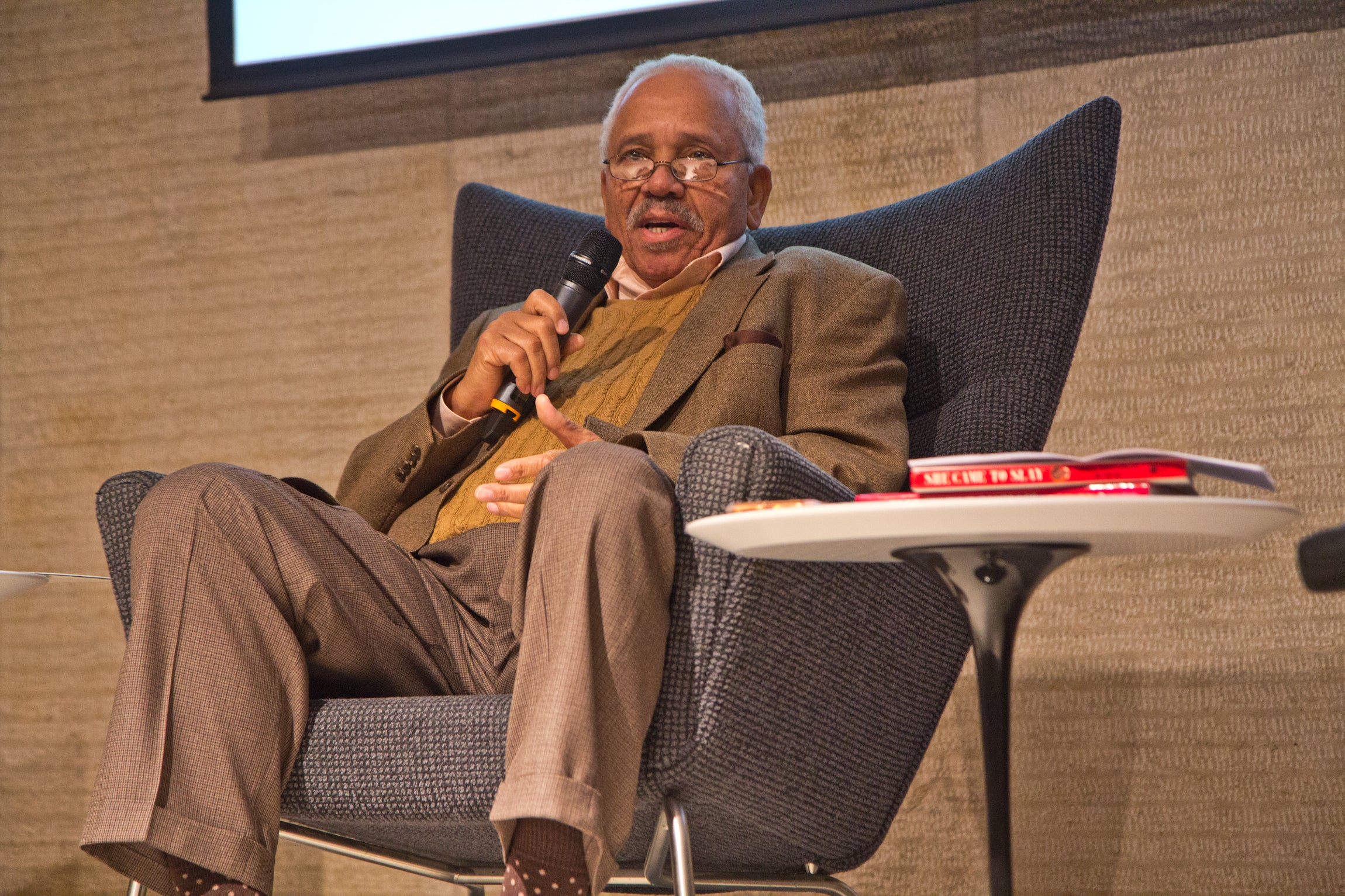
Douglass was a “rock star” to many, speaking to large crowds, writing his own story, while Tubman worked behind the scenes, which she preferred, but the only thanks she received were also “in the shadows” said Dunbar.
Dunbar said she is the first black woman to write a biography of Tubman.
“It’s a great day for black women’s history,” Dunbar declared. The crowd audibly agreed.
Dunbar pointed to the intersection of gender and slavery. She spoke about how Tubman “balanced the line” fighting for both gender equality and emancipation.
Dunbar also recalled the moments when Tubman first escaped slavery, and her journey leading family members and others along the underground railroad.
She was a “woman of few words but of great action,” said Dunbar.
In a question session, audience members asked about reparations, “protected citizen” status, and “online activism.”
“Douglass would be tweeting more than ‘you know who,’” said Trotman.
In the final conversation of the night, Dunbar and Trotman discussed what issues Tubman and Douglass would most likely be thinking about if they were alive today.
Dunbar said Tubman would be thinking about the climate. Trotman spoke of self-care, voting, and not “expecting schools to do what you need to do for yourself.”
“We have a great opportunity to think about her as a person and what it meant to live through the darkest of days.”
WHYY is your source for fact-based, in-depth journalism and information. As a nonprofit organization, we rely on financial support from readers like you. Please give today.


